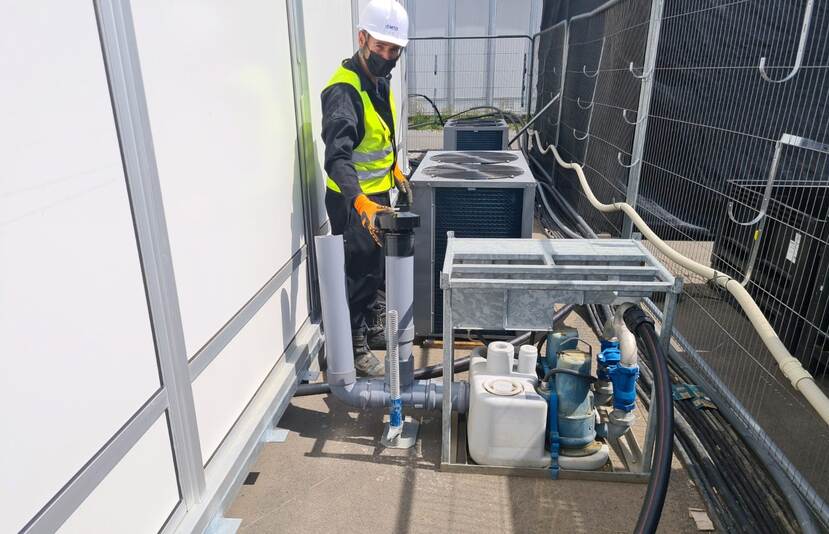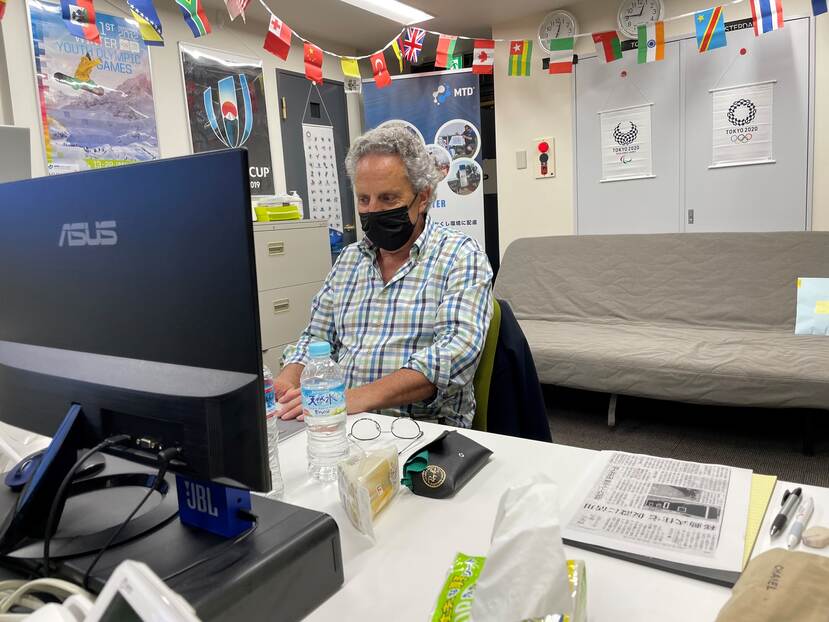'Dutch' drinking water during Olympic Games in Tokyo
Athletes, journalists, spectators and even horses need safe drinking water at the Olympics. The Dutch company MTD makes sure they get it. What’s more, the Tilburg-based company is providing water to flush 6,000 toilets at the Tokyo event. These are the sixth Olympics for which the company has supplied water.

At one major sporting event, 3,000 people, including many athletes, were infected with norovirus. This is an excellent illustration of the importance of safe drinking water at big events, says MTD Managing Director Hans Verhoeven: ‘Safe, clean drinking water and proper toilets are important worldwide, including at events.’
MTD is supplying the water in Tokyo to mobile facilities for athletes, the media and visitors. The international company, headquartered in Tilburg in the southern Netherlands, is connecting kitchenettes and coffee makers at 25 Olympic sites, supplying water to flush toilets and disposing of wastewater. It has also supplied the Tokyo locations with 303 toilet pumps, 122 pumps supplying water to bars and 97 kitchen pumps.
For years now MTD has been providing these services at Dutch festivals like Lowlands and the Zandvoort racetrack. Clean ‘Dutch’ water is flowing from taps at more and more big international events as well, like Expo in Dubai and COP26 in Glasgow.
The Netherlands, land of water
The Netherlands is known as a land of water because of its dykes and Delta Project. But MTD’s temporary water infrastructure is a very different kind of undertaking.
Mr Verhoeven is proud of its work. ‘We don’t supply water for the toilets and kitchens in the stadiums,’ he says. ‘But we do for all the mobile sites: the kitchens and toilets in the tents for catering and doping controls, and the mobile units for spectators, media and athletes. The big challenge is making sure that the volume of water is sufficient to flush the toilets during the breaks, the peak moments when the spectators go to the loo.’
In countries like Japan where mains water is of good quality it can be used, but in many countries its quality is too low. ‘You can’t drink mains water in Qatar,’ says Mr Verhoeven. ‘We’re going to have to purify it during the World Cup next year. Then we’ll pump the purified water through pipes to tap points where spectators can fill their refillable bottles with drinking water. The international football association FIFA wants to do away with plastic bottles. Everyone at the World Cup must drink tap water. We will provide it.’

Working with Japan
MTD has built a solid reputation as a water supplier for the Olympics since Vancouver in 2010. Yet its presence in Japan was by no means assured. The Dutch company was eventually chosen despite fierce competition and strict conditions. Mr Verhoeven is thrilled, and says: ‘We are only one of three Dutch companies in Tokyo.’
In 2017 MTD acquired a Japanese plumbing company, especially so as to be able to meet all the Japanese requirements. This was handy for more than one reason, says Mr Verhoeven. ‘Japanese and Dutch people are very different, in every way. To work well with the Japanese we need Japanese colleagues to build bridges.’
Help from embassies
MTD has received support from Dutch embassies for all the Olympics at which it has worked. ‘That was crucial at some key moments,’ Mr Verhoeven says. ‘Three years ago in Pyeongchang we didn’t have our work permit yet. The Dutch ambassador in Korea personally made sure we got it. And while we were preparing for Rio de Janeiro, the consulate showed us which parts of the city were safe for us and which weren’t.’
Contracts for water infrastructure have been awarded separately until now for each Olympics. But the International Olympic Committee (IOC) wants to change this, and stop having the host country organise certain crucial services. ‘The IOC means to organise services like the internet, electricity and water itself,’ says Mr Verhoeven. ‘These are things you can’t take risks with.’ This makes it likely that MTD will be providing water at all the Olympic Games in the years ahead.
On the verge of bankruptcy
The run-up to the Games was no simple matter: due to the COVID-19 pandemic, they were postponed for a year. Because no major events were held in the Netherlands either in 2020, MTD was on the verge of bankruptcy.
‘It was a disaster,’ says Mr Verhoeven. ‘We already had dozens of people in Japan for the preparations. All the equipment was already there as well. Luckily the IOC made sure that we continued to be paid last year. If not for that, we would have gone bankrupt. In 2020 we lost 90% of our revenue.’
Water for refugee camps
Making a virtue of necessity, the company expanded its sphere of activity. After all, clean drinking water is essential for life everywhere. MTD now supplies water infrastructure to refugee camps, for example in El Paso in the United States, where Mexican children are held. It also provides water for military encampments and temporary housing.
‘We started doing this because we had to, but it’s fine work and we’ve learned a lot from it,’ Mr Verhoeven says. ‘Though it’s tough emotionally for the technicians in the refugee camps. Obviously it’s very different than supplying water to a pop festival, an encampment or, with the Japanese in the coming weeks, at the Olympics.’